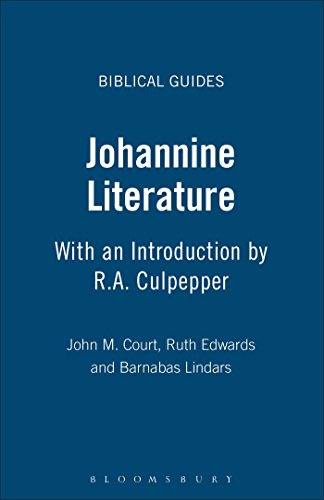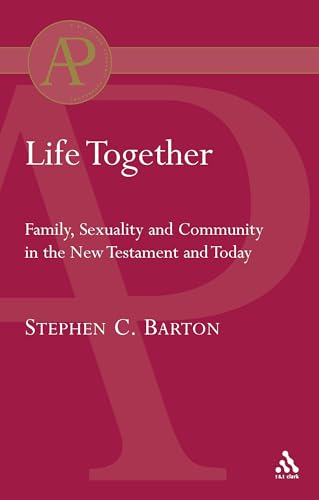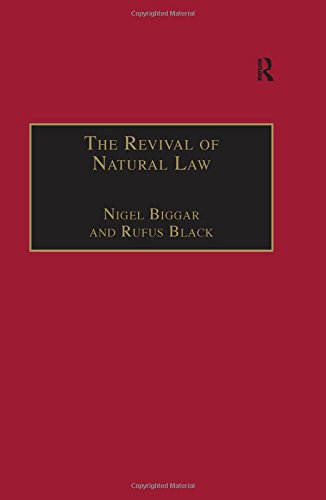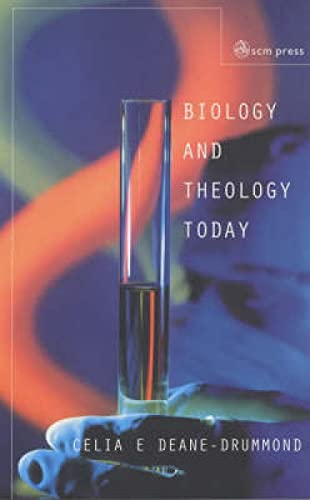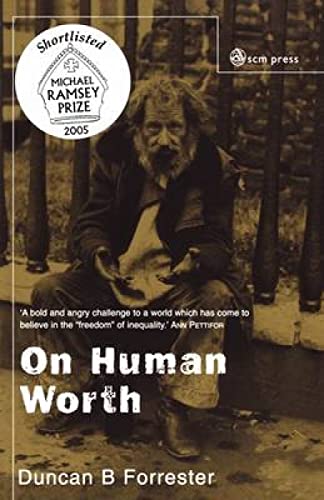Volume 27 - Issue 3
Between Bukuru and New York: Reflections on Islam, Christianity and Western Values
By David SmithFor a few days before the destruction of the twin towers of the World Trade Center in New York and the Pentagon building in Washington, a few British newspapers carried brief reports of civil unrest in the city of Jos in Northern Nigeria. One report mentioned that the trouble had spread to the nearby town of Bukuru, hence my title. However, these reports were very brief, indicating only that a number of people had been killed and that the Nigerian army had been ordered into the area to restore order.
On 11th September 2001, Jos disappeared from the coverage of the Western media, much as four passenger aircraft vanished from the radar screens in America on that fateful day. Thereafter TV news bulletins were filled with horrifying images: passenger aircraft deliberately flown into buildings packed with civilians; people throwing themselves from windows above one-hundred storeys high to avoid incineration; and, most horrifying of all, the slow implosion of those towers with God alone knows how many people inside them. For days afterwards people in the United Kingdom could talk about little else, sharing a sense of bewilderment and incomprehension and a nagging fear that if fanatical terrorists were capable of this deed, they surely would stop at nothing in their attempt to destroy the Western world.
At first glance there might seem to be no connections between the events in America and those in Jos and Bukuru in Nigeria a few days earlier. However there are certain parallels which I wish to explore in this article.
In the first place, there is a commonality of human suffering and loss. Clearly, the events on the Nigerian plateau cannot compare with those in America in terms of scale and the number of lives lost, but (contrary to those brief newspaper reports in Britain) it is now clear that the loss and suffering resulting from the troubles in Jos was considerable. In fact we may ask whether the differential coverage the Western media gives to events in the world suggests that human life is valued differently between the continents? One paragraph on an inside page for the deaths of hundreds of Nigerians compared to saturation coverage for weeks after the disaster in America. It is important for Christians to affirm that God makes no such distinctions; all human life is precious and the tears of widows and orphans matter to him, whether shed in New York or Jos, or by Christians or Muslims.
Secondly, the events in America and Nigeria have in common the fact that they have shaken peoples’ self-confidence and stimulated serious thought and discussion on some fundamental issues. People not usually inclined to ask philosophical questions have found themselves wondering what has happened to the world? In the West the disaster was followed by a remarkable outburst of discussion, reflected in newspaper articles of unusual depth and honesty. One newspaper somewhat sensationally devoted an issue to this discussion, calling it an ‘Apocalypse Special’. Journalists used biblical terminology to suggest that we might indeed be facing the end of the world. In a rather more sober vein, writers tried to wrestle with the disturbing question as to what had created the depths of bitterness and human alienation that could make a deed as terrible as this one possible? The sheer magnitude of the horror in New York resulted in the resurfacing of the most fundamental concerns regarding human life as previously unchallenged axioms were shown to be inadequate if not patently false.
Listening to conversations in Bukuru at that time it was evident that the troubles there also triggered serious discussions. The Plateau State of Nigeria promotes itself as the ‘Home of Peace and Tourism’ but in the light of the violence recently witnessed there, clearly something more than a nice slogan was needed to hold society together. Jos found itself asking the same kind of questions raised in divided cities around the world—cities like Sarejevo, Belfast, Bradford in Northern England, Jerusalem, Los Angeles and Johannesburg. Can people belonging to different cultures, different ethnic groups, and different faiths live together in a single state, or is separation the only way to survive? Is the model of the secular state now dead, destroyed by a rising tide of religious fundamentalisms, each insisting on their own unchallenged superiority and right to rule? And in Jos, as in America, the shock of recent events prompts even deeper, existential questions concerning both Christian and human identity in a world riven by cultural and religious tensions.
However, the third parallel is both the most important and the most difficult to discuss. In the tragedies in America and Nigeria there was what we may call a Muslim connection. This inevitably gives rise to questions concerning the nature of Islam and, in particular, its relationship with the modern world. It is very important at this point to emphasise that the Muslim involvements in America and Nigeria were not of the same kind and we must notice the difference between the overt terrorism in New York and the far more complex situation in Jos.1 Nonetheless, both events have exposed the fault lines which run between Islamic and Western (or Western-influenced) cultures and it is precisely this aspect that I wish to explore further in this article.
Following the destruction of the World Trade Center and the attack on the Pentagon building, both unarguably planned and executed by Muslim terrorists, a wave of anti-Islamic feeling swept through the Western world. In both Britain and America mosques were defaced with hostile graffiti and Muslim women were spat upon in the streets. Far-right political groups, whose leaders had already been stoking the fires of anti-Islamic feelings, saw the dastardly deeds of the terrorists as vindicating their view that Muslims should never have been allowed to settle in Britain and America in the first place. Estimates of the number of Muslims in the United States vary considerably but the figure may exceed five million.2 In large part this is due to immigration, but a significant number of Afro-Americans, the descendants of African slaves who were once firmly Christian, have converted to Islam to form a black-Muslim community. On both sides of the Atlantic there is a move within the majority populations to treat these Muslim communities as the new ‘enemy within’, raising the spectre of serious social strife along this religio-cultural divide within the western democracies.
In the meantime political leaders, well aware of the dangers of internal divisions as they planned the military response to the attack on America, endeavoured to re-direct the passions aroused by these events toward those perceived as the real culprits, the Muslim extremists, or fundamentalists, on the other side of the world. People in the West found themselves in the unusual position of being instructed by their leaders on the subject of religion. President Bush and Prime Minister Blair announced that ‘true Islam’ is a peaceful religion which supports modern, democratic ideals. Both leaders appeared on TV surrounded by local Muslim representatives anxious to be seen and heard endorsing the assurances given by the leaders of the Western world. The Muslims affirmed their loyalty as British and American citizens and condemned the evil acts of the madmen who had attacked New York and Washington. President Bush, who earlier had made the crass mistake of describing the planned American response as a ‘crusade’, now made the remarkable claim that all good Muslims everywhere ‘share our values’.
Islam and Western Values
At one level President Bush’s claim seems, frankly, absurd. If as we may suspect, the reference to ‘our values’ includes everything intended by the phrase ‘the American way of life’—including unlimited individual freedoms—then it is impossible to imagine Muslims adopting such values. The whole of Islamic history, not to mention the teaching of the Qu’ran, is against such a possibility. It is not just a fanatical minority that reject the classic western division of life into ‘sacred’ and ‘secular’ spheres and insist that the worship of God must embrace the entirety of life, such convictions are at the heart of a faith that refuses to put religion in a separate box which isolates it from economic and political concerns. Moreover, throughout its history, Islam has been a missionary faith and has never been content (as, at times, has Christianity) to play the role of chaplain to a society whose fundamental ethical values originate from sources outside divine revelation. Rather, it has felt impelled by a deep religious impulse to expand into non-Islamic areas with the intention of bringing new peoples under the rule of divine law.3
In the light of Islam’s fundamental beliefs therefore, it would be interesting to know just how western Muslims react to the president’s claim. It is understandable if in the present situation they are reluctant to express public dissent, but it would be astonishing if, given a calmer atmosphere and the freedom to express their honest views, they failed at least to qualify their support for Western values. The plain fact is, as Craig Gay has recently said, that the fundamental presupposition ‘embedded in modern institutions and habits of thought’ is the assumption that ‘even if God exists he is largely irrelevant to the real business of life’.4 The title of the book from which this quotation is taken is The Way of the (Modern) World. Or, Why It’s Tempting To Live as if God Doesn’t Exist. If this is the ethos of the modern, Western world, then any Muslim who retains a living contact with his own, radically theistic tradition is bound to at least qualify his support for the values of a culture governed by practical atheism.
It is this, I want to argue, that takes us to the heart of the clash between Islam and modernity. In a brilliant study of the relationship between Islam and the West, John Esposito observes that most Western perceptions of Islam have been shaped ‘by a liberal secularism which fails to recognise that it too represents a worldview which, when assumed to be self-evident truth, can take the form of a “secular fundamentalism” ’. From this secular perspective, alternative paradigms, ‘especially religious ones, are necessarily judged as abnormal, irrational, retrogressive’.5
In a postmodern, post-communist world, increasingly dominated by a capitalist market economy, with its base firmly located in the West, perhaps Islam’s greatest challenge to America, and the feature that most causes secular intellectuals to dismiss it as an anachronistic hangover from an earlier age, is its insistence that economic theory and practice must be subject to divine law. Thus a Muslim scholar discussing the differences between the Western understanding of economics and that of Islam wrote that ‘there is a radical difference between the vision of the good and successful life in the worldview of Islam and that of the capitalist or socialist world’ (he was writing in 1983!). In the former, he says, the aim is to fulfil ‘one’s covenant with Allah’ and to live life ‘in terms of divine guidance as preparation for a more beautiful life awaiting mankind’. In other words, economic activity has both theistic and transcendent reference points; it is not an amoral activity governed by so-called scientific laws. The writer sees clearly that things are very different in the West where ‘an essentially materialistic and earthly worldview’ prevails.6 It is precisely here that Islam presents an awkward, unwelcome and disturbing challenge, not only to Western secularists, but especially to Western Christians who have lived far too comfortably with a modernist worldview that excludes God from the public sphere of life. The question then becomes: do Christians share George Bush’s values?
Christianity and Western Values
In 1915 a Chinese scholar named Ku Hing-ming returned from studies in the West and composed a mock catechism intended to inform Chinese young people about the nature of the Christianity he had observed in America. It goes like this:
Q: Do you believe in God?
A: Yes, when I go to church.
Q: What do you believe when you aren’t in church?
A: I believe in self-interest whatever happens.
Q: What is justification by faith?
A: To believe—each one for himself.
Q: What is justification by works?
A: To put money in one’s pocket.
Q: What is heaven?
A: Heaven is to be able to live at Bubbling Well Road and to drive around in a large motor car.
Q: What is hell?
A: Hell is to fail.7
Clearly there is an element of mockery and perhaps of exaggeration in this catechism. Nonetheless, it is consistent with the reaction of non-western peoples in their encounter with modernity over the past two hundred years, a reaction which discerns that, despite the formal profession of Christianity in Europe and America, the real religion at the centre of the culture is one of self-interest and personal success. This same reaction can be detected in the words of another Chinese scholar, Chee Pang Choong, a theologian based in Singapore and a visiting professor at the University of Beijing. He comments on a speech of President Clinton’s delivered in 1998 in which, addressing immigrants into America, he advised his audience to ‘honor our laws, embrace our culture [and] our most basic values’. With the courtesy characteristic of the Chinese, Professor Choong asks what exactly these ‘basic values might be’? The question is pertinent when, as Choong observes, everything related to the sex scandals of this president had been openly discussed and relentlessly exposed to public gaze, In the eyes of the watching world—literally watching, courtesy of CNN Television which beamed its prurient coverage around the globe twenty-four hours every day—it seemed to be a Christian president on trial. Is it any wonder then that millions of non-Christians in Asia, and Muslims throughout the world, were left to draw their own conclusions concerning ‘western, Christian values’? Professor Choong asks President Clinton precisely the question we are raising with his successor in the Oval Office; ‘Are there still any basic values left?’.8
The response of evangelical Christians in Europe and America to this will be to point out that there is a clear distinction between genuine Christianity and the worldview and ethics which now govern the wider culture. This is a perfectly fair point, but the trouble is that for the past two hundred years western Christianity has failed to make such a distinction.9 Indeed, it has frequently exulted in the convergence between the gospel and civilization. In fact, these two elements were often treated as almost equal components of the blessings which the West was called to bestow on the rest of the world through the agency of the missionary movement. It was widely believed that the deep spiritual needs of humankind, together with their supposed cultural poverty could be met through the spread of ‘the gospel and civilization’. Consequently, it is now rather late in the day to begin the task of prising the gospel from the embrace of Western culture and non-Christians around the world can hardly be blamed if they experience difficulty in distinguishing between the two.10
Back to Bukuru
So far this article has focussed on the situation in the West but I want to conclude by returning to the Nigerian context. When teaching a course on Christian mission I often use an OHP acetate illustrating the church in Africa on which the Sahara, North Africa and parts of East Africa are shown to be areas with a Muslim majority population. The continent south of the Sahara, plus southern Sudan and Madagascar are shown as overwhelmingly Christian. However, between these two blocs, running from the north-east corner of Liberia, across the Sahel and snaking down into East Africa, is a bright red line which designates what the map maker describes as ‘Areas of Tension’. Jos and Bukuru are located in the middle of this line. In other words, it is precisely here that two cultures meet and, as we now know, clash.
I will make three comments on this situation. First, with regard to the controversy over the introduction of Sharia law by the northern states: Sylvester Shikyil, a lecturer in the Law faculty at Jos University, has argued very convincingly that this action violates the Nigerian constitution. He argues that Nigeria is designedly a pluralist state which can only survive and prosper if ‘all the major component parts … agree to adopt a system of governance that gives each of them a sense of being equitable stakeholders in the affairs of state’.11
The move toward the imposition of Sharia law appears to be a move in the opposite direction, toward the de facto establishment of one religion and the diminishing of the freedom of religion quite explicitly written into the Nigerian constitution. Therefore, Shikyil argues, the extension of Sharia must be resisted by all legal and constitutional means available because failure on this issue could seriously endanger the cohesion and stability of the nation.
Having said that, I want to ask, secondly, what motivates Muslims in their desire to extend Sharia beyond the personal sphere (for which there is provision in the constitution) and into the realms of criminal and commercial law? One answer often given to a question like this is simply to state that Islam is a reactionary religion; it is by nature totalitarian and therefore represents humankind’s past. Dr Shikyil himself appears to endorse this view when he describes Islam as ‘a spent force in the emerging international system’ and argues that Nigeria’s future lies along the path of ‘modernisation and progress’.12 This view of Islam as irretrievably conservative and incapable of change is widely held and has articulate and powerful advocates both in Bukuru and New York.
With the greatest of respect, I want to suggest that it is a mistaken view. Of course Islam has many faces and there are deeply conservative Muslims who claim to be the sole guardians of the purest traditions of their faith and seek to ensure that the community is sealed off from contact with the wider, polluting world. However to treat such groups as representative of the religion as a whole, and on this basis construct a model of normative Islam in terms of bigotry, intolerance and the propensity to violence ignores both the witness of sober history and the evidence of change within Islam today. John Esposito demonstrates that change, often rapid and disturbing change, is a reality within Islam and he says that the tendency to ‘pit modern change against a fixed tradition’ obscures the degrees of difference and change within modern Islam.13
Let us return, by way of example, to the many Muslims who we noted earlier are now living in the West. These are people who wish to affirm a double identity, both as faithful followers of Muhammed and as loyal citizens of modern, pluralist democracies. This involves tension as the Islamic traditions have to be related to, and reinterpreted within the new pluralist setting in which political and religious freedoms, established against tyranny, are fundamental values. In such a setting, religions change. For example, coercion in matters of belief must be renounced and in a pluralist society faith can only be commended by means of example, teaching and persuasion. Consequently in a close and sustained encounter with modernity, Islam is liable to become one religious option among others. In this respect it follows the path already taken by Christianity which once defended the divine right of kings and had its own brutal methods of compulsion when dealing with heretics and pagans. Just as Christianity has left behind its Christendom phase, so also Islam is challenged by democratic ideals and is likely to be compelled to discover ways of propogating its faith that are consonant with this context.
But to return to my question: what is the attraction of Sharia law for Nigerian Muslims? This is a complex issue but we should at least consider the reasons Muslims themselves give for supporting such a change. The preamble to the document introducing Sharia into the northern Nigerian State of Zamfara in 1999 says that this is intended to ‘curb the high crime rate, moral decadence and anti-social behaviours now increasingly on the rise within the state’.14 In other words, the declared motivation concerns the restraining of social evils and the encouragement of righteous behaviour within the state. Christians will of course have many questions about this, not least in relation to the Pauline insight that the law is a feeble Instrument with which to address the problem of human wickedness. Nonetheless, it is surely important to understand, even to sympathise with, Muslim anxieties regarding the moral and social consequences of what is perceived to be a creeping secularisation.
While driving from north to south in Nigeria one passes huge advertising hoardings. Most of these contain advertisements extolling the virtues of cigarette smoking. In one of them, young smiling Africans are sharing a packet of British made cigarettes with the catch phrase across the bottom of the picture: Brings out the London in you. It may be, as Dr Shikyil argues, that Nigeria’s future lies along the path of growing modernisation, but Christians, no less than Muslims, should be aware of the dangers that lie in wait along that path. Nothing could be more tragic than for the churches of Nigeria to simply repeat the terrible mistakes made by the Western churches in relation to modernity in the past two hundred years through an uncriticalembrace of technology and the acceptance of a system of economics cut adrift from moral restraints and principles. Is it naïve and unrealistic to suggest that serious discussions over these issues between Muslims and Christians might do much to take the heat out of the Sharia issue?
I come to a final question concerning Christianity in Northern Nigeria. Let me remind you that there is a clear distinction in the New Testament between proselytism and conversion. The former existed before the coming of Christ and was the means by which Gentile enquirers were incorporated within the people of Israel. They were circumcised, baptised in water and taught the Torah. In other words they became, to all appearances, Jewish. The early church faced with a massive influx of Gentiles might have been expected to follow precisely this pattern. Astonishingly, they did not. Instead they struck out in a completely new and revolutionary direction. They decided that Gentile believers in Jesus ‘should be left to find a lifestyle of their own within Hellenistic society under the guidance of the Holy Spirit’. In other words, apostolic Christianity did not demand conformity to a single cultural pattern but accepted a valid cultural pluralism from the start. This really was revolutionary. As Andrew Walls points out, the proselyte model would have produced devout Gentile believers but ‘they would have had virtually no impact on their society; they would have effectively been taken out of that society’. Conversion, by contrast, meant that they turned toward Christ as Gentiles, asGreeks, and now sought to open up their culture to him. The result was that ‘a truly Greek, truly Hellenistic type of Christianity was able to emerge’.15
My final question is a deceptively simple one which requires another article to explore: in the history of Christianity in Northern Nigeria have the churches approached the Muslim community on the basis of a ‘proselyte model’ or a ‘conversion model’? Has the Muslim north understood the message of Christian evangelists who frequently came from a different cultural background, one often associated with westernisation and modernisation, to mean, to become a follower of Isa is to become like us? The question is crucial because devout Muslims are unlikely ever to get close to the Jesus of the gospels as long as the lifestyle of the evangelists and the worship of the churches makes him appear to be the destroyer of all that is treasured within their traditions.
Perhaps all of us, readers of Themelios. Christians in Bukuru and New York, need to reflect on the practice of the apostles in cross-cultural mission and seek the grace to take seriously today their extraordinary approach to conversion. In the process we may discover that we have more in common with Muslims than we ever dreamed possible and, by God’s grace, Islam may at last have a chance to encounter the prophet Isa as he is set before us in the gospels.16
1 The complexity of the crisis triggered in Nigeria by the introduction of Sharia law on the part of Muslim-dominated northern states is recognised by Bee Debki in an account of the outbreak of violence in the city of Kaduna in February, 2000. While the author regards Sharia as unconstitutional he recognises that the troubles cannot be explained simply in terms of religious conflict, but that ethnic and economic factors played an important part in these tragic disturbances. The Tragedy of Sharia—Kaduna Crisis From An Eyewitness (no publication details).
2 See Alan Neeley, ‘Religious Pluralism: Threat or Opportunity for Mission?’ in Paul Varo Martinson (ed.), Mission at the Dawn of the 21st Century; A Vision for the Church (Minneapolis; Kirk House Publishers, 1999), 38.
3 See the classic studies of Kenneth Cragg. The House of Islam (Belmont, California: Dickenson Publishing, 1969): The Call of the Minaret (New York/Oxford: Oxford University Press, 1964); Muhammed and the Christian: A Question of Response (London/New York: Darton. Longman and Todd, 1984). See too Michael Nazir-Ali, Frontiers in Muslim-Christian Encounter (Oxford: Regnum Books, 1987).
4 Craig Gay, The Way of the (Modern) World, Or, Why It’s Tempting to Live As If God Doesn’t Exist (Grand Rapids; Eerdmans, 1998), 2.
5 John L. Esposito, The Islamic Threat—Myth or Reality? (New York/Oxford: Oxford University Press, 1995 (2nd ed.)). 249. This is by far the best book on Islam and modernity I have come across. See also, W. Montgomery Watt, Islamic Fundamentalism and Modernity (London: Routledge, 1988); Norman Anderson, Islam and the Modern World—A Christian Perspective (Leicester: Apollos, 1990).
6 Khalid M. Ishaque, ‘The Islamic Approach to Economic Development’ in John Esposito (ed.). Voices of Resurgent Islam (New York/Oxford: Oxford University Press. 1983). 268.
7 Cited in Martin Jarrett-Kerr, Patterns of Christian Acceptance: Individual Responses to the Missionary Impact, 1550–1950 (London: Oxford University Press, 1972), 1. I have modified the catechism slightly in the interests of clarity.
8 Chee Pang Choong, ‘A Friendly Observer’s View of North American Global Mission Responsibility Today’. In Paul Varo Martinson (ed.). Mission at the Dawn of the 21st Century, 368–69.
9 On a recent flight out to Nigeria I read a small book entitled Unto This Last by the Victortan intellectual, John Ruskin, Published in 1862, it attacks the so-called science of Political Economy which separated economics from moral and ethical considerations and purported to identify the laws by means of which human wealth and happiness could be increased. Raskin’s attack is devastating, but his most withering comments are reserved for Christians who, in their love of money, have abandoned the first principles of the gospel; ‘I know of no previous instance in history of a nation’s establishing a systematic disobedience to the first principles of its professed religion’. John Ruskin, Unto This Last and Other Writings (London: Penguin Books, 1997), 203.
10 Professor Choong comments: ‘For years I have been trying very hard to convince my part of the world that it is a very serious mistake or misunderstanding to identify the West with Christianity without much qualification’. He observes that Asians continue ‘to identify what is Western with Christianity’ and find it hard to distinguish the two. ‘It is not just an Asian issue, but a global one [with] profound implications for the mission and life of the church’ In Paul Varo Martinson (ed.), Mission at the Dawn of the 21st Century, 364–65.
11 Sylvester Shikyil, The 1999 Constitution and the Sharia Legal System in Nigeria’ Research Bulletin of the Theological College of Northern Nigeria, October, 2000 (34), 29.
12 Ibid, 20.
13 Esposito, The Islamic Threat, 237.
14 See Shikyil, ‘The 1999 Constitution’, 32. If must be admitted that Muslim advocacy of Sharia sometimes serves only to increase the anxiety of its opponents. For example, Dr Abdur Rahman 1. Dol, Professor of Islamic Law at Ahmadu Bello University. Zaria, argues convincingly that Western penal policies manifestly fail to arouse shame on the part of offenders and contribute toward the hardening of a criminal class. This is valid observation, the truth of which is reflected in new quests for forms of ‘restorative justice’ in the Western world. However, Dr Dol then defends punishments such as amputations, stoning to death and beheading on the grounds that they deter crime and prevent the offenders ‘from committing the same crime in the future’. One cannot cavil with the conclusion but Muslims can hardly attack Western penal policies as inhumane and in the next breath defend such penalties. See A. Rahman Doi, Non-Muslims Under Shariah (Brentwood, Maryland: International Graphics, 1979), 13.
15 Andrew Walls, ‘The Mission of the Church Today in the Light of Global History’. Paul Varo Martinson (ed.), Mission at the Dawn of the 21st Century, 387.
16 Since completing the article I have discovered the important work of Lamin Sanneh on the subject dealt with here. See his Piety and Power: Muslims and Christians in West Africa (New York: Orbis Books, 1996) and The Crown and the Turban: Muslims and West African Pluralism (Boulder, Colerado: West View Press, 1997).
David Smith
David Smith
Covenant Fellowship Associate Reformed Presbyterian Church
Greensboro, North Carolina, USA


